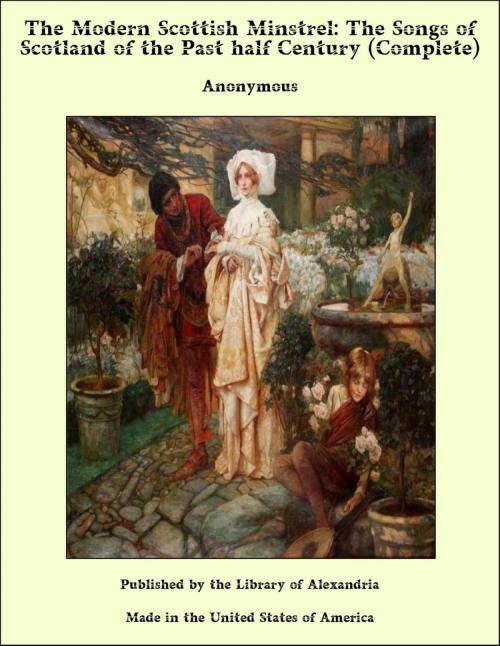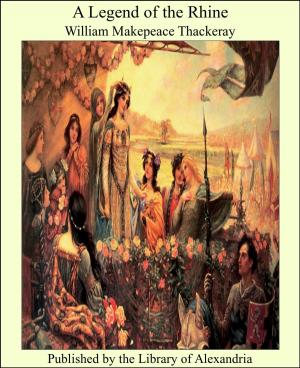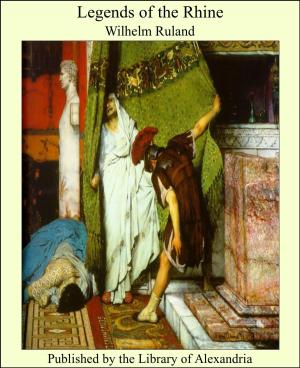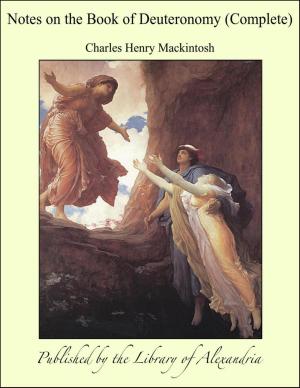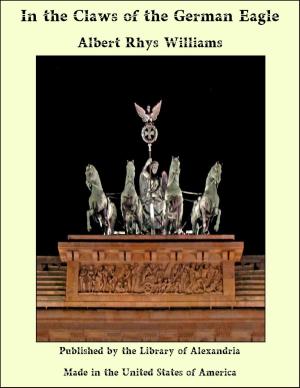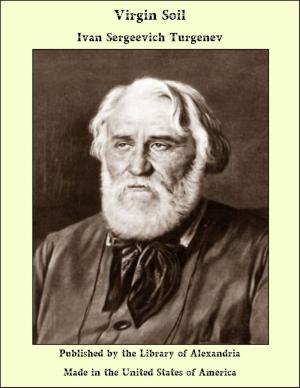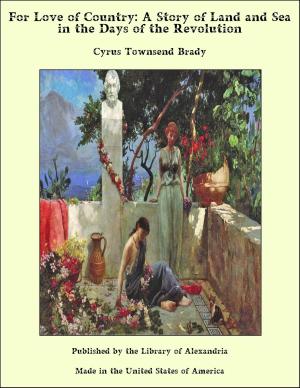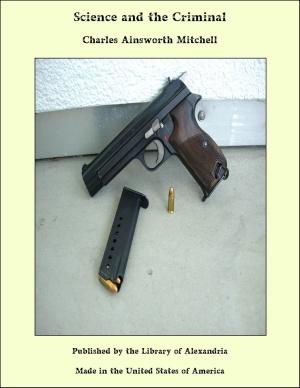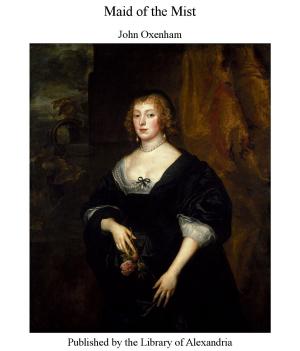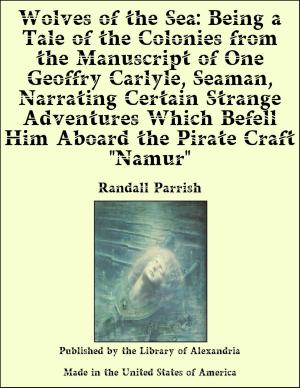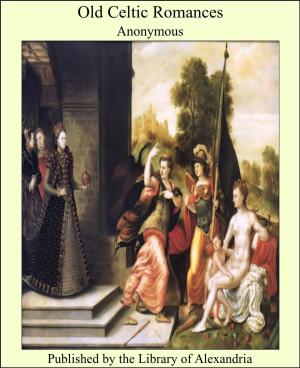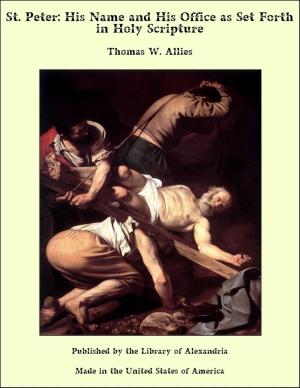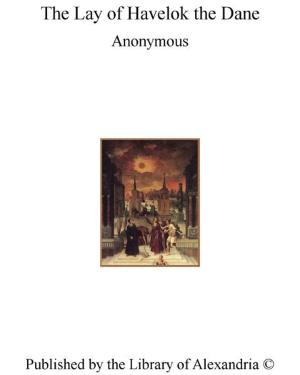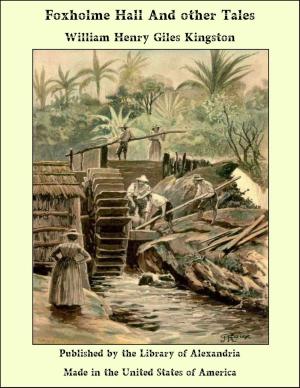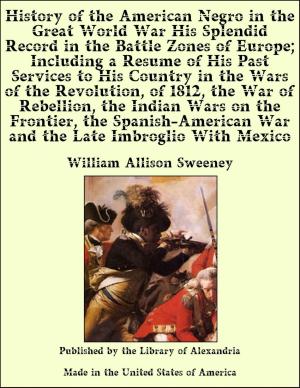The Modern Scottish Minstrel: The Songs of Scotland of the Past half Century (Complete)
Nonfiction, Religion & Spirituality, New Age, History, Fiction & Literature| Author: | Anonymous | ISBN: | 9781465619600 |
| Publisher: | Library of Alexandria | Publication: | March 8, 2015 |
| Imprint: | Language: | English |
| Author: | Anonymous |
| ISBN: | 9781465619600 |
| Publisher: | Library of Alexandria |
| Publication: | March 8, 2015 |
| Imprint: | |
| Language: | English |
Among those modern Scottish poets whose lives, by extending to a considerably distant period, render them connecting links between the old and recent minstrelsy of Caledonia, the first place is due to the Rev. John Skinner. This ingenious and learned person was born on the 3d of October 1721, at Balfour, in the parish of Birse, and county of Aberdeen. His father, who bore the same Christian name, was parochial schoolmaster; but two years after his son's birth, he was presented to the more lucrative situation of schoolmaster of Echt, a parish about twelve miles distant from Aberdeen. He discharged the duties of this latter appointment during the long incumbency of fifty years. He was twice married. By his first union with Mrs Jean Gillanders, the relict of Donald Farquharson of Balfour, was born an only child, the subject of this memoir. The mother dying when the child was only two years old, the charge of his early training depended solely on his father, who for several years remained a widower. The paternal duties were adequately performed: the son, while a mere youth, was initiated in classical learning, and in his thirteenth year he became a successful competitor for a bursary or exhibition in Marischal College, Aberdeen. At the University, during the usual philosophical course of four years, he pursued his studies with diligence and success; and he afterwards became an usher in the parish schools of Kemnay and Monymusk. From early youth, young Skinner had courted the Muse of his country, and composed verses in the Scottish dialect. When a mere stripling, he could repeat, which he did with enthusiasm, the long poem by James I. of "Christ-kirk on the Green;" he afterwards translated it into Latin verse; and an imitation of the same poem, entitled "The Monymusk Christmas Ba'ing," descriptive of the diversions attendant on the annual Christmas gatherings for playing the game of foot-ball at Monymusk, which he composed in his sixteenth year, attracting the notice of the lady of Sir Archibald Grant, Bart. of Monymusk, brought him the favour of that influential family. Though the humble usher of a parish school, he was honoured with the patronage of the worthy baronet and his lady, became an inmate of their mansion, and had the uncontrolled use of its library. The residence of the poet in Monymusk House indirectly conduced towards his forming those ecclesiastical sentiments which exercised such an important influence on his subsequent career. The Episcopal clergyman of the district was frequently a guest at the table of Sir Archibald; and by the arguments and persuasive conversation of this person, Mr Skinner was induced to enlist his sympathies in the cause of the Episcopal or non-juring clergy of Scotland. They bore the latter appellation from their refusal, during the existence of the exiled family of Stewart, to take the oath of allegiance to the House of Hanover. In 1740, on the invitation of Mr Robert Forbes, Episcopal minister at Leith, afterwards a bishop, Mr Skinner, in the capacity of private tutor to the only son of Mr Sinclair of Scolloway, proceeded to Zetland, where he acquired the intimate friendship of the Rev. Mr Hunter, the only non-juring clergyman in that remote district. There he remained only one year, owing to the death of the elder Mr Sinclair, and the removal of his pupil to pursue his studies in a less retired locality. He lamented the father's death in Latin, as well as in English verse. He left Scolloway with the best wishes of the family; and as a substantial proof of the goodwill of his friend Mr Hunter, he received in marriage the hand of his eldest daughter.
Among those modern Scottish poets whose lives, by extending to a considerably distant period, render them connecting links between the old and recent minstrelsy of Caledonia, the first place is due to the Rev. John Skinner. This ingenious and learned person was born on the 3d of October 1721, at Balfour, in the parish of Birse, and county of Aberdeen. His father, who bore the same Christian name, was parochial schoolmaster; but two years after his son's birth, he was presented to the more lucrative situation of schoolmaster of Echt, a parish about twelve miles distant from Aberdeen. He discharged the duties of this latter appointment during the long incumbency of fifty years. He was twice married. By his first union with Mrs Jean Gillanders, the relict of Donald Farquharson of Balfour, was born an only child, the subject of this memoir. The mother dying when the child was only two years old, the charge of his early training depended solely on his father, who for several years remained a widower. The paternal duties were adequately performed: the son, while a mere youth, was initiated in classical learning, and in his thirteenth year he became a successful competitor for a bursary or exhibition in Marischal College, Aberdeen. At the University, during the usual philosophical course of four years, he pursued his studies with diligence and success; and he afterwards became an usher in the parish schools of Kemnay and Monymusk. From early youth, young Skinner had courted the Muse of his country, and composed verses in the Scottish dialect. When a mere stripling, he could repeat, which he did with enthusiasm, the long poem by James I. of "Christ-kirk on the Green;" he afterwards translated it into Latin verse; and an imitation of the same poem, entitled "The Monymusk Christmas Ba'ing," descriptive of the diversions attendant on the annual Christmas gatherings for playing the game of foot-ball at Monymusk, which he composed in his sixteenth year, attracting the notice of the lady of Sir Archibald Grant, Bart. of Monymusk, brought him the favour of that influential family. Though the humble usher of a parish school, he was honoured with the patronage of the worthy baronet and his lady, became an inmate of their mansion, and had the uncontrolled use of its library. The residence of the poet in Monymusk House indirectly conduced towards his forming those ecclesiastical sentiments which exercised such an important influence on his subsequent career. The Episcopal clergyman of the district was frequently a guest at the table of Sir Archibald; and by the arguments and persuasive conversation of this person, Mr Skinner was induced to enlist his sympathies in the cause of the Episcopal or non-juring clergy of Scotland. They bore the latter appellation from their refusal, during the existence of the exiled family of Stewart, to take the oath of allegiance to the House of Hanover. In 1740, on the invitation of Mr Robert Forbes, Episcopal minister at Leith, afterwards a bishop, Mr Skinner, in the capacity of private tutor to the only son of Mr Sinclair of Scolloway, proceeded to Zetland, where he acquired the intimate friendship of the Rev. Mr Hunter, the only non-juring clergyman in that remote district. There he remained only one year, owing to the death of the elder Mr Sinclair, and the removal of his pupil to pursue his studies in a less retired locality. He lamented the father's death in Latin, as well as in English verse. He left Scolloway with the best wishes of the family; and as a substantial proof of the goodwill of his friend Mr Hunter, he received in marriage the hand of his eldest daughter.
